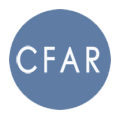Full Membership
Associate Member (Clinical Affiliate)
Clinical Affiliate Members who have become Associate Members and held this position for at least one year, during which time they have actively participated in CFAR, can apply for Full Membership.
There will be an interview to assess if Full Membership is a suitable position for the candidate to obtain within CFAR.
The interview will take into account the candidates clinical experience, their engagement with Lacanian psychoanalysis and with CFAR,and any other relevant issues.
Associate Member (Non-CFAR Training)
Associate Members who have not trained with CFAR but have another Lacanian Training can apply for Full Membership after a minimum of two years during which they must have been actively involved with CFAR, i.e. participated in seminars and lectures as well as undertaken some teaching and involvement with the organisation.
There will be an interview to assess if Full Membership is a suitable position for the candidate to obtain within CFAR.
The interview will take into account the candidates clinical experience, their engagement with Lacanian psychoanalysis and with CFAR and any other relevant issues.
Associate Member (CFAR Training)
Associate Members who have trained with CFAR for a minimum of four years and written two papers can apply for Full Membership.
CFAR Training
Trainees who have undertaken the CFAR Clinical Training programme for a minimum of four years and satisfied its requirements can apply for Full Membership. These requirements do not guarantee that an application will be successful.
Application Procedure (November 2014)
- The candidate arranges a meeting with the Training Committee, after discussion with their tutor. The Training Committee gets tutor and supervisor reports, and if necessary discusses these with them. Candidate discusses with the Training Committee their training trajectory; analysis trajectory; what kind of commitment to psychoanalysis; clinical work/experience. They may have started work on their papers but this would not be a requirement at this stage.
- The Training Committee accepts that the candidature go forward or explains why not. If yes, the candidate proceeds to prepare their papers. The time period here might be a long one between the meeting and the submission of papers. It might involve other aspects of work, such as clinical presentations etc.
- The Training Committee considers the papers. The application is accepted or not, or clinical presentations or other suggestions are pursued. If the Training Committee doesn’t accept the candidature, the reason(s) why are made clear. These suggestions aren’t simply ‘Do this and you’ll get a qualification’ but aim to encourage reflection and work in the candidate.
- The trainee can approach the Training Committee at any time for an open discussion of their proposed candidature.
It is made clear that tutorial and supervisor reports do not guarantee anything. The candidature papers are not just papers but papers with a view to becoming a member of CFAR i.e. a member of a psychoanalytic organisation. Therefore, the candidate should take on board that their papers will be judged insofar as they will indicate something about their position towards psychoanalysis as an analyst. Neither tutor nor supervisor is a “candidature coach” i.e. the moment a candidate chooses to present their candidature is entirely their decision whatever support or encouragement they may have received. It is not a question of knowing just what to do to become a member, what hoops one has to get through, but about a demonstration of a psychical formation as such. This means that although the papers are important, they are by no means the central part of the candidature.
Registration on the CFAR training does not guarantee membership of CFAR, which is always subject to assessment at the time of application.
